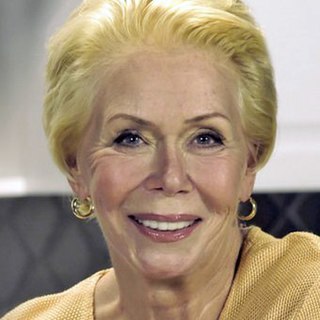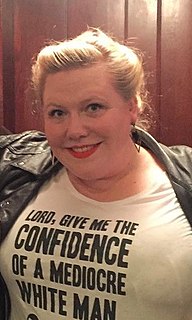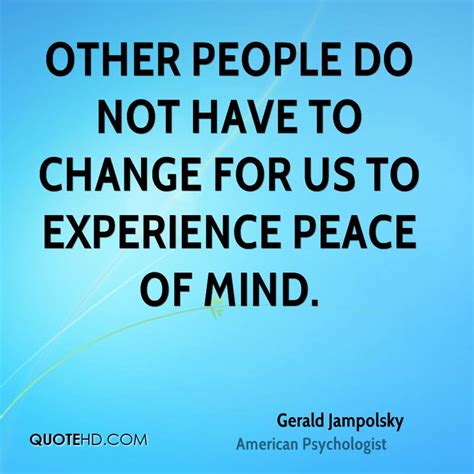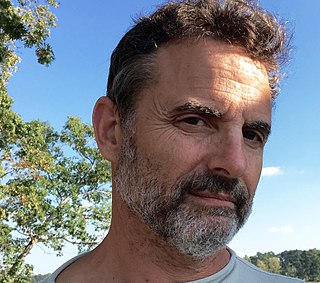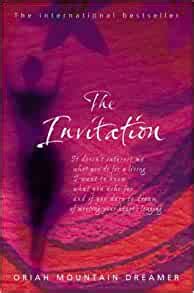A Quote by Martha Beck
Standards of beauty are arbitrary. Body shame exists only to the extent that our physiques don't match our own beliefs about how we should look.
Related Quotes
Our relationship with food - how, when, what and why we eat - is a direct expression of our underlying feelings, thoughts and beliefs about ourselves. It has to do with stances we take that get reflected not only in our relationship with food, but in all our relationships. It just so happens that the relationship with food causes enough conflict, grief, shame and hurt that we’re willing to look at it.
How our governments need standards of integrity! How our communities need yardsticks to measure decency! How our neighborhoods need models of beauty and cleanliness! How our schools need continued encouragement and assistance to maintain high educational standards! Rather than spend time complaining about the direction in which these institutions are going, we need to exert our influence in shaping the right direction. A small effort by a few can result in so much good for all of mankind.
I believe we all have lists of shame. Long lists. We live with our constellation of shames quite privately. But they weigh us down. I wish I could abracadabra away shame. This is such a waste of our small time on earth. Our bodies are often the focus of shame. The shame of the body changing. Of the sexual body. Of the aging body. Not being able to do what you once could do. Even just looking at your skin as you age, the texture, the wrinkle, the sag, and somehow feeling ashamed and responsible for its changes.
Our ideas about love and attractiveness are so primal, our need for belonging so intense, that most of us are loath to abandon our favorite beliefs on these issues. If you've ever let yourself feel lovable and lovely, only to be deeply hurt, you may see accepting your own body as a setup for severe emotional wounding.
Our strategy should be not only to confront empire, but to lay siege to it. To deprive it of oxygen. To shame it. To mock it. With our art, our music, our literature, our stubbornness, our joy, our brilliance, our sheer relentlessness — and our ability to tell our own stories. Stories that are different from the ones we’re being brainwashed to believe. The corporate revolution will collapse if we refuse to buy what they are selling — their ideas, their version of history, their wars, their weapons, their notion of inevitability.
When we speak of ordinary unqualified knowledge, my thought is that we are implicitly relativizing to the standards imposed by our evolution-derived humanity. These are standards that determine when we consider it appropriate to store beliefs just as a human being, rather than in one's capacity as an expert of one or another sort. Such stored beliefs are to be available for later use in one's own thought or in testimony to others.
More and more people are beginning to feel that there must be another way of thinking, perceiving, and acting. And perhaps the beginning of another way of looking at the world is to re-evaluate all of our beliefs. It is, after all, our beliefs that determine what we are, experience, and expect. When we are willing to take a new look at our own beliefs, we then have an opportunity to begin rediscovering who and what we are and to redetermine our true purpose on Earth.
How to avoid cliche at the root of conception? Practice sincerity. If we've come by ... material honestly, through our own personal experience or imagination, we may rightly claim it as our own. ... The way to make material your own is to look for it in yourself. ... It should be a story that only you can tell, as only you can tell it.
As I experience it, appreciation of beauty is access to the soul. With beauty in our lives, we walk and carry ourselves more lightly and with a different look in our eyes. To look into the eyes of someone beholding beauty is to look through the windows of the soul. Anytime we catch a glimpse of soul, beauty is there; anytime we catch our breath and feel "How beautiful!," the soul is present.
Most of our difficulties, our hopes, and our worries are empty fantasies. Nothing has ever existed except this moment. That's all there is. That's all we are. Yet most human beings spend 50 to 90 percent or more of their time in their imagination, living in fantasy. We think about what has happened to us, what might have happened, how we feel about it, how we should be different, how others should be different, how it's all a shame, and on and on; it's all fantasy, all imagination. Memory is imagination. Every memory that we stick to devastates our life.
Within each of us there is the heart of a lion, the courage to simply be who & what we are regardless of others opinions or our own fears. Sometimes this courage has been buried beneath years of shaming that may have been so implicit or insidious that we breathed it in, unaware of how it separated us from knowing our own beauty of being. May we each know our own beauty & right to be today. May we drop down into the heart of the lion within & say to shame, when it rears it's head, "Not today!"



